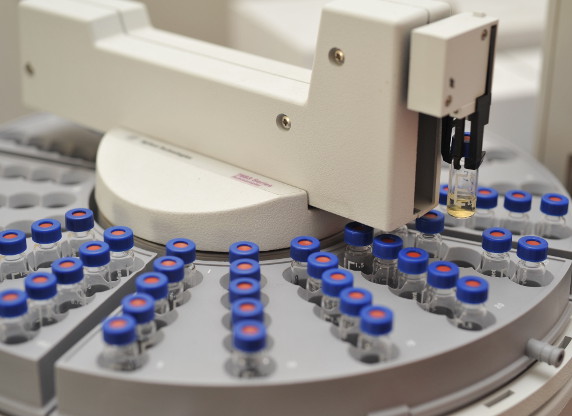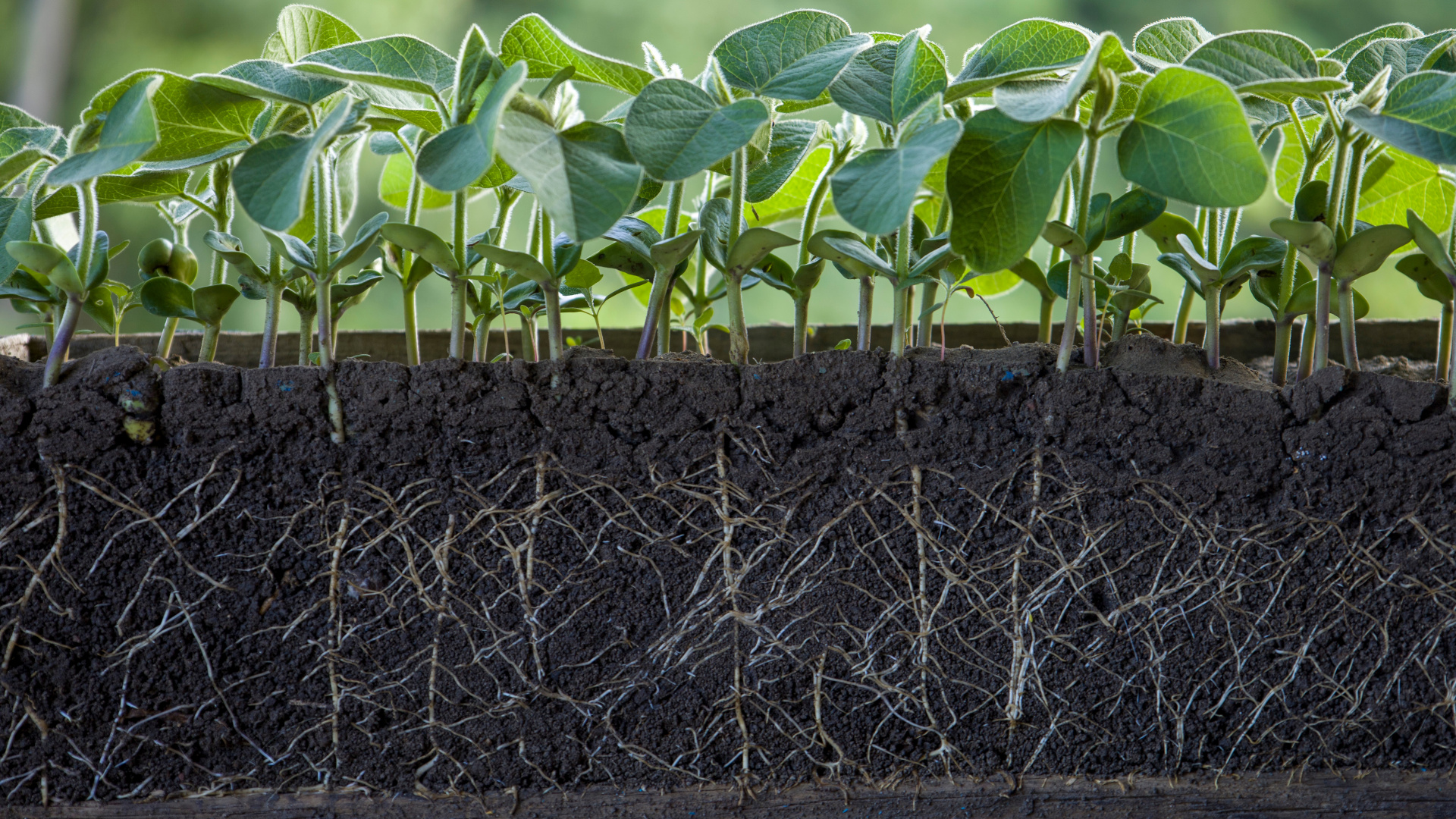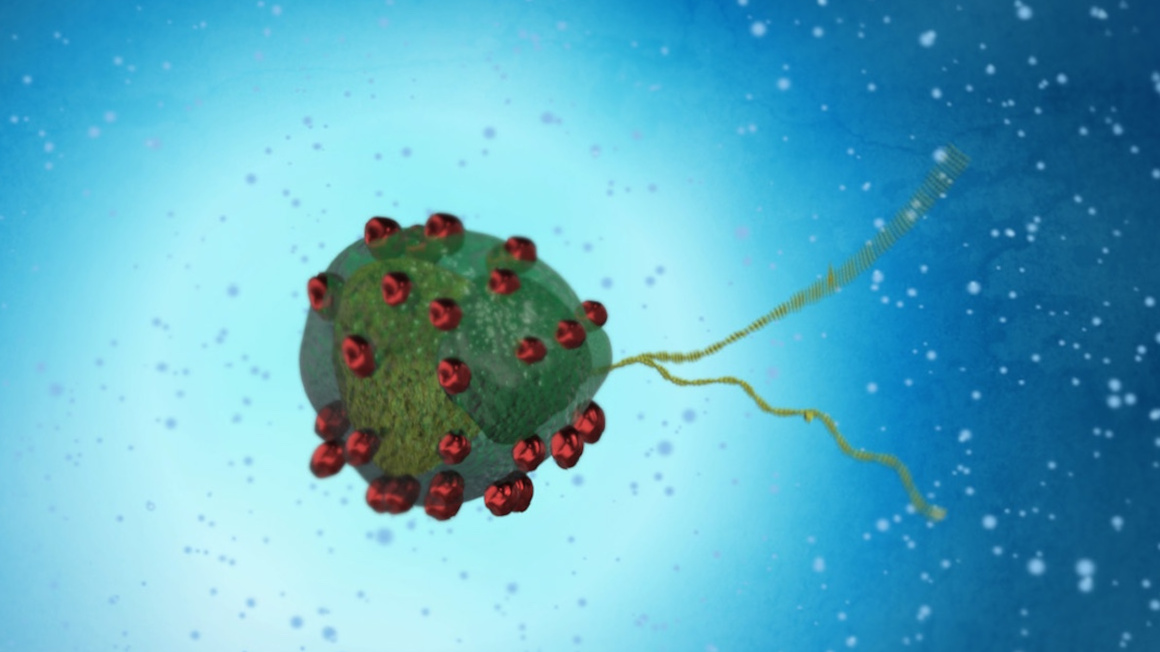
Nature is teeming with countless micro-organisms potentially of benefit to human and animal health. Lactic acid bacteria are among the best-known of those invisible helpers. But they are certainly not the only ones. As part of the GOBI (Good Bacteria and Bioactives in Industry) strategic alliance, Organobalance GmbH, Bionorica SE and Evonik Nutrition & Care GmbH are not only conducting further research on known candidates but also actively looking for new beneficial bacteria suited to the manufacture of innovative products in the animal feed, healthcare and pharmaceutical industries. Their goal: to find a bacterium to replace antibiotic use in the case of humans and animals. As the winner of the "Innovationsinitiative Industrielle Biotechnologie", the consortium will be funded by the Federal Government's Department of Education and Research (BMBF) over the next six years in a project worth up to 9 million euros.
Lactic acid bacteria are among those strains that promote our well-being by providing us with healthy intestinal flora. In addition to the so-called "probiotics" already found in many foods, micro-organisms with healing powers are also present in the environment. Not only that: the microbial cosmos remains largely unexplored, meaning that many types of beneficial bacteria have yet to be described. Sustainable resources such as micro-organisms are playing an ever bigger role on the path towards a bio-based economy, replacing petroleum. In 2011, the BMBF published the "Innovationsinitiative industrielle Biotechnologie" under the auspices of the "Nationale Forschungsstrategie BioÖkonomie 2030" to advance the process of innovation and thus structural change in industry. It focuses on fostering alliances in which companies from the most diverse sectors work together.
Alliance searches for beneficial bacteria
Organobalance GmbH, Bionorica SE and Evonik Nutrition & Care GmbH have come together to form just such a strategic alliance. As the name suggests, the GOBI – "Good Bacteria and Bioactives in Industry"– alliance aims to research beneficial bacteria for use in animal feed, healthcare and the pharmaceutical industry. "We want to evaluate the rapidly expanding knowledge of micro-organisms' interplay with humans and animals, as well as of balanced micro-flora's importance to our health, actively and systematically, afterwards turning it into products," explains Christine Lang, Manager of Organobalance GmbH.
The Gobi-Alliance at a Glance
Participating companies:
Organobalance GmbH; Berlin
Evonik Nutrion & Care GmbH; Essen
Bionorica SE; Neumarkt (Upper Palatinate)
A shared fascination
Although the companies differ in many regards, the trio are working in harmony, united by their fascination at the opportunities offered by microbial research and the knowledge of what it could mean for human and animal health. It also motivates them to invest in research that offers both major opportunities and risks. However, as one of the winners of the innovation initiative "Industrielle Biotechnologie", GOBI need not bear the risk alone. The alliance has been granted project funding of 9 million euros and will be financed by the BMBF over the next six years.
Pooling knowledge and expertise
The companies are pooling their expertise in their search for beneficial bacteria. Evonik, a specialist chemical enterprise and animal feed manufacturer, brings its models of animal intestines and gut micro-flora, while the Bavarian pharmaceutical company Binorica is sharing its knowledge of the effect of plant-based drugs on inflammations of the respiratory system. In turn, the Berliner biotech company Organobalance can contribute its extensive collection of bacteria and yeast strains and its special screening process to identify agents. "Each of us is intimately familiar with our own area. That's what makes it all so exciting," emphasises Lang. Additionally, the research trio also hope to pool further knowledge on microbiota, microbiomes, metabolomes and genomes, and apply it to the use of micro-organisms in industry, thus developing bioactive products.
Finding alternatives to antibiotics
The companies have concrete applications in mind once they have identified the new beneficial bacteria. For example, in future Evonik hopes to be able to offer farmers a bioactive substance in place of the antibiotics prevalent in animal feed. Bionorica is putting its money on a combination of plant extracts and beneficial bacteria as an alternative to the antibiotics used in the treatment of respiratory illnesses. Meanwhile, Organobalance is seeking to develop a dietary supplement involving beneficial bacteria to counteract inflammatory responses in the gut at an early stage and thus help prevent such consequences as diabetes and obesity.
Convincing laboratory models are the route to market approval
Yet the road to new bioactive products is long, and many obstacles stand in the way of their approval. For that reason the GOBI partners aim to invest a good deal of their energy in developing convincing laboratory models. "We need to gain as much knowledge as possible up front from laboratory models so that we can conduct animal tests and clinical trials responsibly and efficiently," emphasises Lang, alluding to Organobalance's experience in the area. Lang: "To achieve market approval, we need convincing in vivo data. If we make a smart pre-selection in the lab, we will most likely be able to confirm the results afterwards in vivo."


